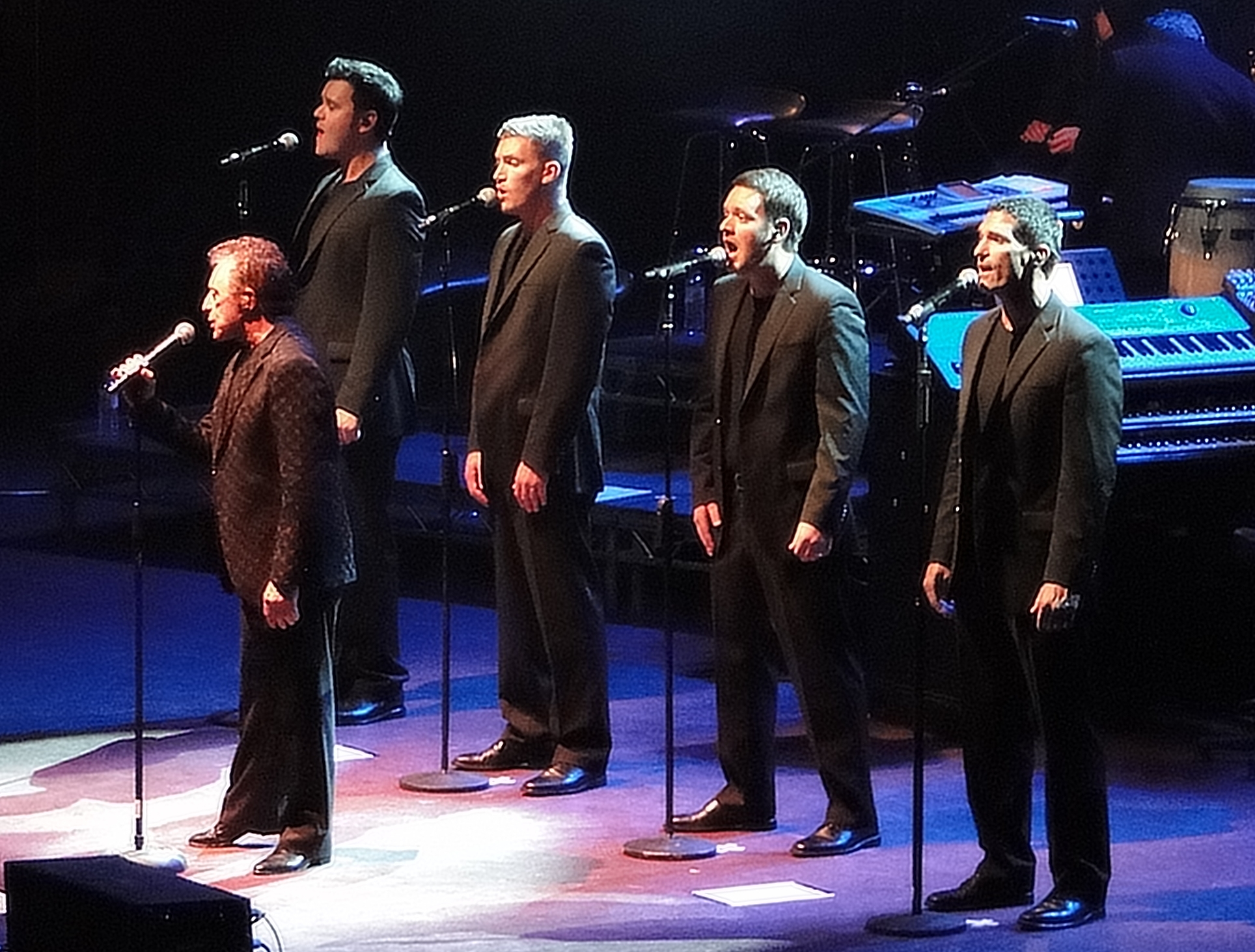“The Ninth Circuit noted that copyright law protects ‘the creative labor of authors [rather than] authors’ post-completion representations about the lack of veracity of their own avowedly truthful work,’ which the Ninth Circuit referred to as the ‘asserted truths’ doctrine.”
Last week, the U.S. Court of Appeals for the Ninth Circuit affirmed a decision on appeal from the U.S. District Court for the District of Nevada in Corbello v. Valli. In particular, the Ninth Circuit affirmed the district court’s judgment after a jury trial in favor of Valli, wherein the panel held that the musical, Jersey Boys, did not infringe Corbello’s copyright in an autobiography of Four Seasons’ band member Tommy DeVito.
Factual and Procedural History
 In the late 1980s, Tommy DeVito engaged with writer Rex Woodard to ghostwrite the autobiography of Tommy DeVito (the Work), which told “complete and truthful chronicle of the Four Seasons.” Upon completion of the book, Woodard and DeVito were unable to find a publisher for the book prior to Woodard’s death in 1991. Diana Corbello, Woodard’s widow, was the successor to Woodard’s interest in the Work and was also unsuccessful in finding a publisher for the Work.
In the late 1980s, Tommy DeVito engaged with writer Rex Woodard to ghostwrite the autobiography of Tommy DeVito (the Work), which told “complete and truthful chronicle of the Four Seasons.” Upon completion of the book, Woodard and DeVito were unable to find a publisher for the book prior to Woodard’s death in 1991. Diana Corbello, Woodard’s widow, was the successor to Woodard’s interest in the Work and was also unsuccessful in finding a publisher for the Work.
In 2005, the musical, Jersey Boys, debuted, and it was revealed that DeVito had registered the Work under his name only. Corbello successfully secured recognition on Woodard as a co-author of the work in a copyright secured in 2007. Also in 2007, Corbello filed suit against DeVito and several other defendants including “Frankie Valli, Bob Gaudio, as well as writers, directors, and producers of the Play (and related entities)—[claiming] twenty causes of action, including various forms of copyright infringement.” DeVito settled with Corbello and, therefore, was not a party to the appeal to the Ninth Circuit. The district court concluded that 12 alleged similarities between the Work and the Play were aspects of the Work that were not protectable by copyright. Corbello appealed to the Ninth Circuit.
Application of the Extrinsic Test to Undisputedly Factual Elements
Noting that the parties’ disagreements centered around whether the Play and the Work were substantially similar, the Ninth Circuit explained that the extrinsic component of the substantial similarities test includes a three-step analysis, wherein:
(1) the plaintiff identifies similarities between the copyrighted work and the accused work; (2) of those similarities, the court disregards any that are based on unprotectable material or authorized use; and (3) the court must determine the scope of protection (“thick” or “thin”) to which the remainder is entitled “as a whole.”
The Ninth Circuit reviewed six similarities between the Work and the Play and determined that each of the similarities failed the extrinsic test for substantial similarity because the only involved non-protectable elements of the Work. For example, the Ninth Circuit found that the introduction of Tommy DeVito, which occurred in both the Work and the Play, was not protected by copyright because Tommy DeVito was a historical character, rather than a “fictional character whose personality was created in the Work.” The Ninth Circuit also noted that the introduction of the song “Big Girls Don’t Cry” was unprotectable because the only similarity between the Play and the Work was that the song was inspired by a Rhonda Fleming movie line, which is a an unprotectable historical fact.
In addition, the Ninth Circuit considered the comparisons between the Beatles and the Four Seasons that existed in both the Play and the Work. Noting that the similarities included the use of the words “social movement” in describing the Beatles and a description of how the two music groups competed for record sales and chart placement, the Ninth Circuit explained that the competition between the groups was an unprotectable historical fact. The Court also explained that “[o]rdinary phrases are not entitled to copyright protection” and the phrase “social movement” was simply an unprotectable common phrase describing an idea.
Asserted Truths Doctrine
The opinion noted that copyright law protects “the creative labor of authors [rather than] authors’ post-completion representations about the lack of veracity of their own avowedly truthful work,” which the Ninth Circuit referred to as the “asserted truths” doctrine. The Court explained that the Work explicitly represented itself as a historically accurate account by describing itself as the “complete and truthful chronicle of the Four Seasons,” wherein DeVito openly promised not to allow “bitterness to taint the true story,” and noted his “candor” in telling the story.
The judges rejected Corbello’s argument that the asserted truths doctrine did not apply because the Work was never published, noting that publication is not dispositive and instead a proper analysis included an examination of “the representations made by a work, whether made only to a few actual readers, to future intended readers, or, upon publication, to the general public.” The Ninth Circuit again noted that “the Work made unequivocal representations of truthfulness.”
The Ninth Circuit reviewed six similarities between the Play and the Work and found that they failed the “extrinsic test for substantial similarity because, whether or not actually factual, they involve[d]—sometimes in combination with other non- protected features—elements of the work held out as facts and so not protectable.” For example, the Ninth Circuit considered the introduction of a character, Mary, to Valli and the representation of Mary’s character, to be unprotectable because the Work held it out as true and “[f]acts presented in a historical work, ‘whether correct or incorrect,’ may be used by subsequent authors without infringing.”
Thus, the appeals court concluded that “[g]iven the Work’s emphatic representation that it is a nonfiction autobiography, the Play did not infringe on any of the protected expressive elements of the Work, even if the writers of the Play ‘appropriated [Woodard’s] historical research’” and affirmed the district court’s grant of judgment as a matter of law because the similarities between the Play and the Work involved only elements of the Work not protected by copyright.

![[IPWatchdog Logo]](https://ipwatchdog.com/wp-content/themes/IPWatchdog%20-%202023/assets/images/temp/logo-small@2x.png)

![[Advertisement]](https://ipwatchdog.com/wp-content/uploads/2024/04/Patent-Litigation-Masters-2024-sidebar-early-bird-ends-Apr-21-last-chance-700x500-1.jpg)

![[Advertisement]](https://ipwatchdog.com/wp-content/uploads/2021/12/WEBINAR-336-x-280-px.png)
![[Advertisement]](https://ipwatchdog.com/wp-content/uploads/2021/12/2021-Patent-Practice-on-Demand-recorded-Feb-2021-336-x-280.jpg)
![[Advertisement]](https://ipwatchdog.com/wp-content/uploads/2021/12/Ad-4-The-Invent-Patent-System™.png)







Join the Discussion
No comments yet.